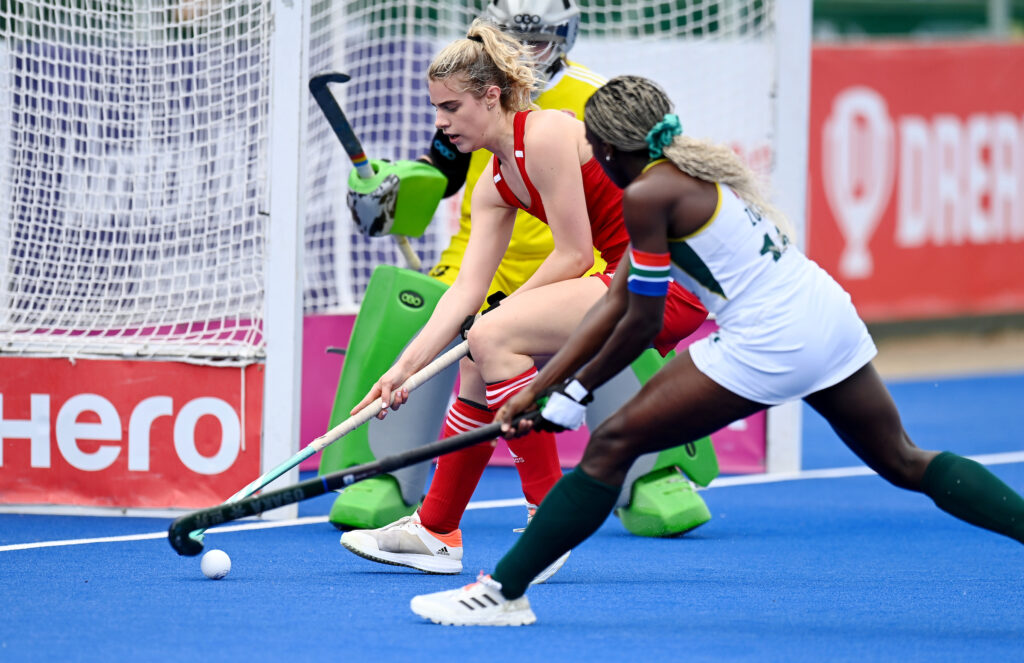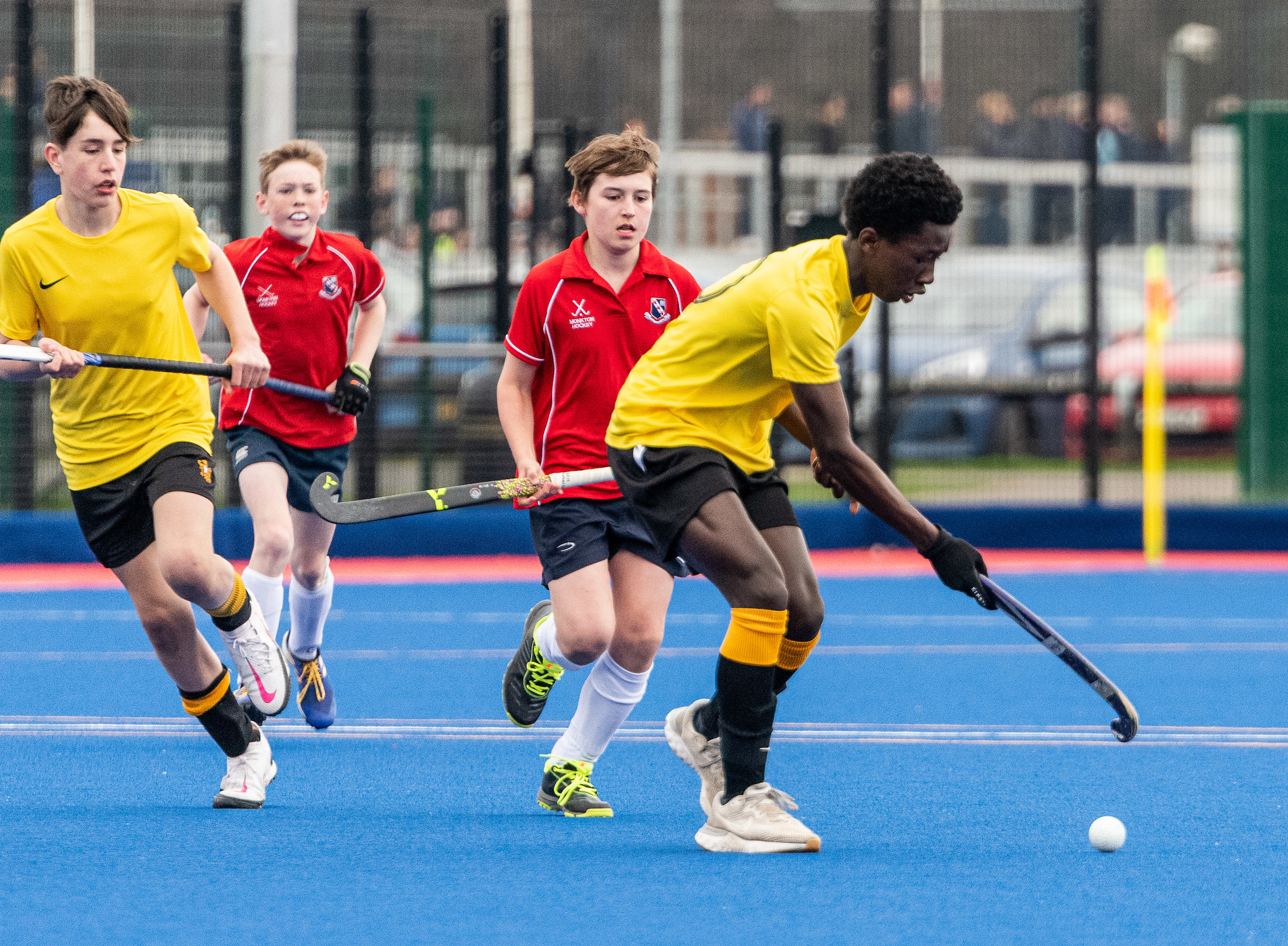In the second part of our series, England Hockey’s Heather Williams looks at how the new talent development is shaping up
Whenever I’ve discussed the changes to our talent system, I’ve found that people immediately want to understand the structure – asking ‘what will this new system look like?’ and comparing it to the previous structure, a very linear, traditional one where players moved from club to county to regions and so on.
Our aim is to move away from this ‘one size fits all’ approach to a more flexible system, one which offers more, and different, environments to find and develop high potential players, and one where players can move through and up each level in our talent system from any route.
We’ve always envisioned these multiple routes as lots of different places developing talent foundations, be these schools, counties, clubs, or Talent Centre accredited clubs. This is why we’ve introduced new terminology and are referring to the early talent development stage as ‘Talent Foundations’. We want to get the environment right, both from a hockey development perspective, but also to offer more opportunities – more routes to develop, and to appeal to and cater for a wider diversity of high potential athletes.
Whilst we already had in place our Clubmark scheme – a way for parents and young players to be confident that an environment is safe, fun and well run – Talent Centre accreditation is all those things with the added assurance that it also provides for high-potential players.
Structure is important to help everyone understand their role and where they fit in. For me though, as important if not more important, is what happens in all the talent development environments which make up the system – the content of their programmes and their cultures.
In determining what ‘great’ environments looked like, we spoke to those working within hockey, studied talent development research and looked at other sports. We came up with a widespread list of critical components from leadership and governance, to how clubs planned to engage with their local stakeholders and community as well as more ‘on pitch’ elements such as coaching provision and player development and wellbeing. We’ve organised these into eight elements which makeup the Talent Centre Framework. You can read more about these on England Hockey’s web pages.
The eight elements reflect an important principle that whilst the work on the pitch is important, the ‘off pitch’ elements are equally vital to ensure a strong development environment. And when I say off-pitch I don’t just mean the player education programme, I mean the way the Talent Centre is led and operates too, how people behave and what drives those behaviours.
So how has this been progressing? Well, at the time of writing, we are working with 37 clubs towards them becoming accredited Talent Centres. As with any new process, there have been important learnings for both England Hockey and the clubs going through the accreditation. A good number are really close to gaining their accreditation and we’re hoping to announce around 20-25 clubs who will become the first to complete this process very soon, with the remaining continuing to work with us to achieve their accreditation.
We’ve found that those clubs who have completed the Clubmark process had a head start. Similarly, those who have had multiple people working through the process have generally been better equipped as they’ve been better able to share the workload and cascade information through the club.

From my perspective, Talent Centre Accreditation is as much about the development and learning it stimulates as the outcome. So, this process has been particularly exciting when we’ve been able to facilitate clubs working together to share their experiences, around topics like integrating juniors into senior hockey.
The step beyond Talent Centres, and what will effectively ‘replace’ Performance Centres, includes Talent Academies. It is important to recognise that whilst Talent Centres are the major transformative element in our plan – looking to raise the base level of junior talent development across our sport – Talent Academies are aimed at those who want to, and are capable of, taking the next step in their hockey progression towards international hockey. Realistically, this is 500 athletes per gender across the country, between 15 and 18 years old.
We see three key ways in which Talent Academies will accelerate the development of these players; more frequent contact time than Performance Centres could offer, greater opportunities to be more integrated with adult hockey, and a more holistic consideration of our young players time spent in various environments.
Like Talent Centres, Talent Academies will also need to meet identified criteria across the eight elements, with a more stringent ‘minimum viable criteria’ and comprehensive quality assurance and review processes in place.
Many people ask, and I’m sure some reading now will too, ‘Won’t this mean juniors drift towards these “super clubs”?’. To them (and any readers today) I say that it’s really important to clarify that Talent Academies will be hosted by the clubs and are not the club.
Players can continue to play junior, and senior hockey for ‘their’ club, and in fact it’s an important cultural and management requirement of our licensing process that the clubs hosting Talent Academies buy in to this as well. To this end, we’ll require clubs to have a management committee, with an independent person on the committee to ensure players from other clubs are effectively integrated. Part of our stakeholder management requirements also includes that the host club builds stronger relationships with other clubs, schools and counties in their catchment area.
Admittedly, this is a challenging proposition for some clubs, who fear losing status and their best juniors to local rivals. To these people I say two things; firstly, a gentle reminder that we’re only talking about one segment of hockey – talent development – and not all the other fantastic routes into our game such as introductory programmes, junior club hockey, county hockey, school hockey and community programmes.
Secondly, to see our children and talented athletes develop to their best potential, we need to give them the best opportunities to be challenged, thrive and develop, and sometimes this means we need to allow them to move on.
Heather Williams is the Head of Elite Talent Development at England and Great Britain Hockey and is part of the team leading the development and implementation of England Hockey’s new Talent Development System





I think the changes can only be a good thing. To carry on doing the same thing and expecting different results is mad. As a parent of two children who have been through the County system and had some experience of PC I can honestly say the PC used was not the pinnacle of their junior hockey careers. The coaching was impersonal with the coaches going no further than delivering pretty dull sessions and trotting out coaching cliches. There was a definite them and us approach, few smiles and laughs and rather too much shouting in a Victorian school master fashion. The selections were at times baffling both at County and PC – sometimes you wondered whether the coaches had got the wrong names or had mistaken identity. In several years we never saw any of these coaches at the top junior Club games or tournaments to assess the talent pool. Nor did they ever seek feedback from the Clubs and Schools of the players or ask information to better understand the children. They were simply not interested.
Perhaps we were unlucky, there have been some truly exceptional coaches at PC’s and I was very impressed by coaches at another PC when one of the kids was playing – they were light years ahead of the PC we were involved with and it must be hard for those. Hopefully we don’t lose them. But the harsh reality is that the vast majority of the best coaches are employed in the larger Clubs and the Independent schools and some PC’s are unable to attract talent. This leaves an inconsistent approach.
It may be that the new system does not achieve as much as hoped but I am optimistic as I think the coaching talent and the knowledge the big clubs have of the junior talent out there will make a much better experience for all. The training methods and off pitch work will be better too.
I say get behind the EH ideas. As regards pricing, the PC kit and training cost well over £500 and that’s before the travel costs. In contrast Club subs covering a weekday and weekend session were about £270 for the season and kit of £100 that can be used season after season. I know which was better value for money.
The argument about disadvantaging state school children can be trotted out for both systems. The good news is that clubs, schools and the counties are all working towards increasing diversity there and that can only be a good thing. I would however like to see a bursary system to cover all costs for those who need it – surely this could attract sponsors?!
We have no talent access in Norfolk and I feel this new system has become a postcode lottery for children. The children in talent academy will have access to festivals and coaching and talent spotting over and above those not in this environment and there are huge sections of the country without access due to geography. This was not thought through. There needs to be an academy accessible by all.